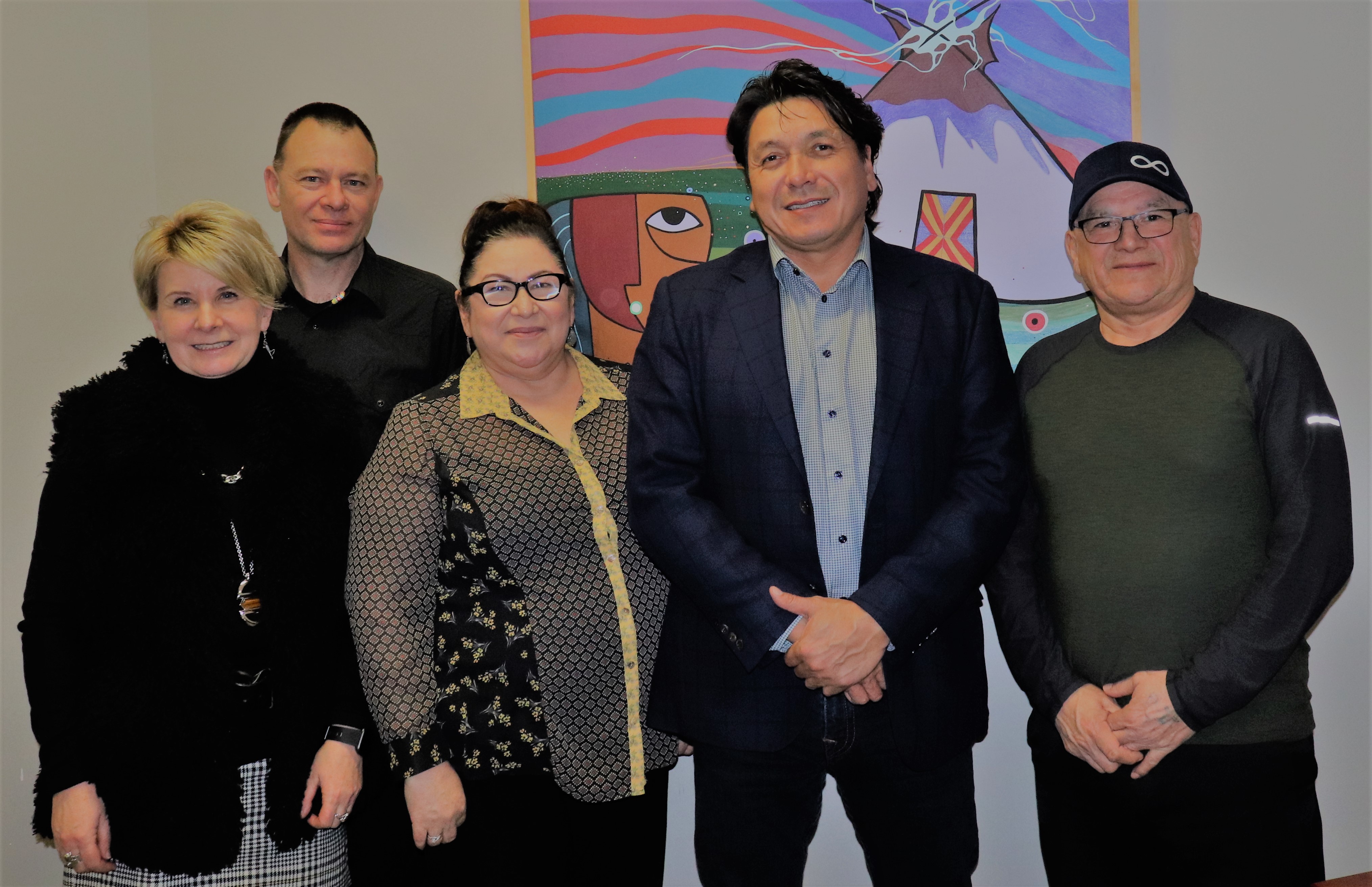
USask-led Indigenous health research network finds home at Station 20 West
In a significant step for Indigenous health research in Saskatchewan and nationally, a new University of Saskatchewan (USask)-led network dedicated to improving health and wellness in Indigenous communities will be moving into Station 20 West in a core neighborhood of Saskatoon’s west side.
By USASK RESEARCH PROFILE AND IMPACT“We are really happy about this partnership,” said Caroline Tait, a prominent community-engaged research leader at the USask College of Medicine and member of the Métis Nation-Saskatchewan (MN-S). “Our health research networks will become better integrated into the community as Station 20 West is more accessible to our community partners and less intimidating as a community research resource than being located on the university campus.”
Tait and USask Indigenous studies professor Simon Lambert lead the new national co-ordinating centre for the nine Network Environments for Indigenous Health Research (NEIHR) across Canada, with $1.5 million from the Canadian Institutes of Health Research (CIHR). The networks foster applied research with community partners and training of community-based-researchers and students, enabling Indigenous peoples to have more control over what and how health research is conducted.
Tait also leads the Saskatchewan NEIHR network—the First Nations and Métis Health Research Network—to advance health research within Indigenous communities in the province, working in close partnership with the Federation of Sovereign Indigenous Nations (FSIN), MN-S, the Whitecap Dakota First Nation, and a team of more than 60 researchers and community partners. The Saskatchewan NEIHR has $3.5 million in funding from CIHR for five years with the possibility of two five-year renewals, as well as in-kind support from the FSIN and MN-S.
Both the national co-ordinating centre and Saskatchewan networks will soon have staff moving into the space leased by USask at Station 20 West. Tait expects there will be a total of eight to 10 NEIHR researchers and staff, as well as students doing internships, located there.
“Station 20 West is pleased to welcome this project that will allow for some much-needed Indigenous-led health research to take place in the community,” said Len Usiskin, Station 20 West co-manager. “All of our co-locators share a common purpose to contribute to social and economic equality in Saskatoon’s core neighbourhoods. This project will make a significant contribution to this effort.”
Lambert, who has been appointed executive director for the national NEIHR co-ordinating centre, will be among those moving to Station 20 West in the coming months.
“Indigenous urban communities are rapidly growing. Researchers need to be in the midst of these communities if they are to have any credibility or impact in the future,” he said.
The First Nations and Métis Health Research Network has already awarded almost $60,000 in community project grants this year, and expects to award another $250,000 over the next five years, as well as support more than 50 Indigenous students.
“We already have 19 Indigenous university researchers associated with the network, and they will work with communities across the spectrum of health and wellness research,” Tait said.
“First Nations and Métis people will lead the research projects and help identify research priorities. This location at Station 20 West makes it much easier when working with our Elders because it is easy to access by car or transit. Drawing upon the traditional Métis sash, our networks will weave together the unique strengths of communities and researchers to help address health disparities.”
Research assistants hired from Indigenous communities will collect data in communities across the province, community research facilitators will connect communities to relevant research opportunities, and Elders and knowledge keepers will provide cultural guidance on relationship building, protocol, research, and community and land-based learning.
Tait, who is board vice-president of the Elizabeth Fry Society of Saskatchewan co-located at Station 20 West, points out that Station 20 West is already a key meeting place for Indigenous partners and researchers engaging with Elders and other community members. For instance, the First Nations and Métis Organ Donation and Transplantation Think Tank initiated by Tait has met regularly at Station 20 West over the past year.
“First Nations peoples in Saskatchewan are now positioned to assert their Indigenous perspectives on health research, and reclaim a voice that contributes to the dismantling of old order research practices,” said FSIN Vice-Chief David Pratt. “Having these networks located at Station 20 West alongside other community enterprises makes them more accessible.”
The Saskatchewan networks will work with researchers at USask, University of Regina, and First Nations University, and with partners including the Office of the Treaty Commissioner, Northern Inter-Tribal Health Authority, Aboriginal Friendship Centres of Saskatchewan, Gabriel Dumont Institute, Saskatchewan Indian Institute of Technologies, and Saskatchewan Polytechnic.
“These networks will provide opportunities to collect and protect Métis-specific health data to inform Métis health and well-being priorities, which will improve the overall wellness of our citizens, based on our identity, culture and values,” said MN-S Minister of Health Marg Friesen. “And having them based at Station 20 West makes it easier for Métis citizens to access.”
The new $100.8-million national NEIHR program represents the largest-ever single investment in Indigenous health research in Canadian history. The initiative is led by USask College of Medicine faculty member Carrie Bourassa, scientific director of the CIHR Institute of Indigenous Peoples’ Health based at USask, and involves the other 12 CIHR national research institutes as partners.
Article re-posted on Jul 24, 2020 9:14:31 AM.
View original article.
